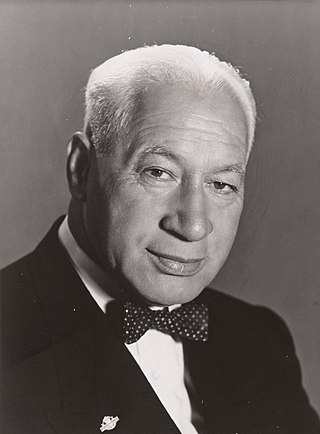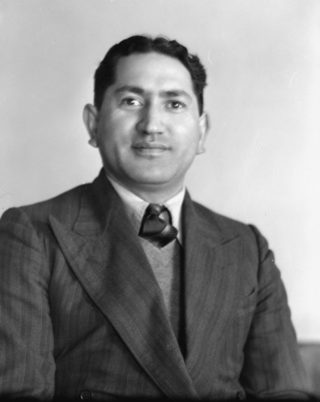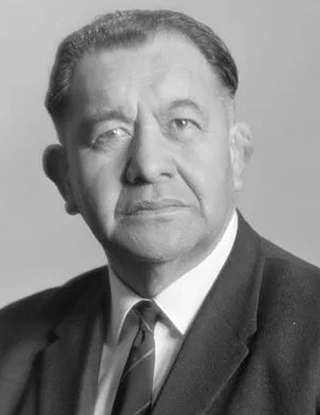The Rātana movement is a Māori church and pan-iwi political movement in New Zealand, founded by Tahupōtiki Wiremu Rātana in the early 20th century. The Rātana Church has its headquarters at the settlement of Rātana Pā near Whanganui.

The 1938 New Zealand general election was a nationwide vote to determine the shape of the New Zealand Parliament's 26th term. It resulted in the governing Labour Party being re-elected in a landslide, winning nearly 56% of the vote despite not gaining any more seats. Having replaced the United-Reform coalition, the newly founded National Party also gained a certain amount of ground.

Tini "Whetu" Marama Tirikatene-Sullivan was a New Zealand politician. She was an MP from 1967 to 1996, representing the Labour Party and was New Zealand’s first Māori woman cabinet minister. At the time of her retirement, she was the second longest-serving MP in Parliament, being in her tenth term of office. She was one of twenty holders of the Order of New Zealand, the highest honour of the country.

Māori politics is the politics of the Māori people, who were the original inhabitants of New Zealand and who are now the country's largest minority. Before the arrival of Pākehā (Europeans) in New Zealand, Māori society was based largely around tribal units, and chiefs provided political leadership. With the British settlers of the 19th century came a new British-style government. From the outset, Māori sought representation within this government, seeing it as a vital way to promote their people's rights and improve living standards. Modern Māori politics can be seen as a subset of New Zealand politics in general, but has a number of distinguishing features, including advocacy for indigenous rights and Māori sovereignty. Many Māori politicians are members of major, historically European-dominated political parties, while others have formed separate Māori parties. For example, Te Pāti Māori, holding six of seven Māori electorates, is one such party.

The Minister for Māori Development is the minister in the New Zealand Government with broad responsibility for government policy towards Māori, the first inhabitants of New Zealand. The Minister heads the Te Puni Kōkiri. Between 1947 and 2014 the position was called Minister of Māori Affairs; before that it was known as Minister of Native Affairs. The current Minister for Māori Development is Tama Potaka.

The 24th New Zealand Parliament was a term of the New Zealand Parliament. It opened on 23 February 1932, following the 1931 election. It was dissolved on 1 November 1935 in preparation for the 1935 election. The 24th Parliament was extended by one year because the 1935 election was held later than anticipated due to the ongoing depression, similarly the 1919, and the 1943 elections were held two years late, having been postponed during World War I and World War II respectively.

Tahupōtiki Wiremu Rātana was the founder of the Rātana religion in the early 20th century in New Zealand. He rose to prominence as a faith healer.

Sir Eruera Tihema Te Aika Tirikatene was a New Zealand Māori politician of the Ngāi Tahu tribe. Known in early life as Edward James Te Aika Tregerthen, he was the first Ratana Member of Parliament and was elected in a by-election for Southern Maori in June 1932 after the death of Tuiti Makitanara.

Matiu Rātana, son of Tahupotiki Wiremu Rātana, was a New Zealand politician and president of the Rātana Church.

Tāpihana Paraire "Dobbie" Paikea, also known as Dobson, was a New Zealand politician and Rātana morehu who won the Northern Maori electorate for Labour in 1943. He was a Māori of Te Roroa, Te Parawhau and Ngāti Whātua descent. He was elected following the death of his father Paraire Karaka Paikea who had been the MP, and he held the parliamentary seat until his own death in 1963.

Iriaka Matiu Rātana was a New Zealand politician and Rātana morehu who won the Western Maori electorate for Labour in 1949. She succeeded her husband Matiu Rātana to become the first woman to represent Māori in the New Zealand Parliament. She held the electorate until her retirement in 1969.
Southern Maori was one of New Zealand's four original parliamentary Māori electorates established in 1868, along with Eastern Maori, Western Maori and Eastern Maori. In 1996, with the introduction of MMP, the Maori electorates were updated, and Southern Maori was replaced with the Te Tai Tonga and Te Puku O Te Whenua electorates.
Western Maori was one of New Zealand's four original parliamentary Māori electorates established in 1868, along with Northern Maori, Eastern Maori and Southern Maori. In 1996, with the introduction of MMP, the Maori electorates were updated, and Western Maori was replaced with the Te Tai Hauāuru and Te Puku O Te Whenua electorates.

Tuiti Makitanara, sometimes known as Sweet MacDonald, was a Māori and United Party Member of Parliament in New Zealand.

Sir Makere Rangiatea "Ralph" Love was a New Zealand Māori public servant and leader of Te Āti Awa. One of his brothers was Eruera Te Whiti o Rongomai Love, a New Zealand rugby player, interpreter and military leader.
The Southern Maori by-election of 1932 was a by-election during the 24th New Zealand Parliament. The election was held on 3 August 1932.

Rino Tirikatene is a New Zealand Labour Party politician and a former member of the House of Representatives. He comes from a family with a strong political history.
The Southern Māori by-election of 1967 was a by-election for the electorate of Southern Maori on 11 March 1967 during the 35th New Zealand Parliament. The by-election resulted from the death of the previous member Sir Eruera Tirikatene on 11 January 1967.

The Western Maori by-election 1945 was a by-election held in the Western Maori electorate during the 28th New Zealand Parliament, on 10 February 1945.












